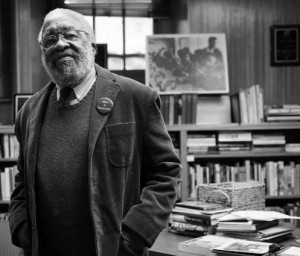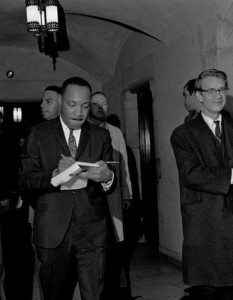Podcast: Play in new window | Download
Updates:
- Wikileaks Reveals The Other Country NSA Surveilled All Content: Media Blackout
- U.S. Government Can Destroy People: Informant Sabu (Hector Xavier Monsegur) And Jeremy Hammond
- Remembering League of Revolutionary Black Workers Founder General Gordon Baker Jr.
- Read General’s Letter To The Detroit Draft Board
- Michael Ratner Resigns From Brandeis University
- International Advisory BoardMichael Ratner’s Open Letter To Brandeis University President Published In Forward Thinking
- Coalition of Imokalee Workers Demonstrations In Columbus, Ohio
- Glenn Greenwald Nowhere To Hide Book Tour -Ticket Give Away – Listen To Answer Question
- We Have 5 Tickets In Each City To Give Away
- Dates City
June 17, 2014 Seattle, WA
June 18, 2014 San Francisco, CA
June 19, 2014 Los Angeles, CA
June 21, 2014 San Diego, CA
June 23, 2014 New York, NY
June 26, 2014 Rosemont, IL
——
Remembering Dr. Vincent Harding
Last month pioneering historian, theologian and civil rights activist Dr. Vincent Harding had died at the age of 82. Harding was a close adviser to Dr. Martin Luther King Jr. and wrote King’s famous antiwar speech, “Beyond Vietnam: A Time to Break the Silence.” King delivered the address at Riverside Church in New York City on April 4, 1967.
After King was assassinated, Harding became the first director of the Martin Luther King Jr. Memorial Center and of the Institute of the Black World. He later became Professor of Religion and Social Transformation at Iliff School of Theology in Denver. After serving in the Army for several years Harding became a pacifist and later served as co-chairperson of the social unity group the Veterans of Hope Project. He’s the author numerous books including There Is A River and Wade in the Water: The Wisdom of the Spirituals.
- Vincent was sometimes called by black activists across the continent, the gentle giant.
- Giant, not because of his physical size but because of intellectual stature.
- Last summer we did a conference together speaking to a national conference of Quakers.
- He was an incredibly soft-spoken and gentle person, yet could be so absolutely incisive in his quiet comments.
- He was so persuasive that everyone had to pay attention to him.
- On campus he was either in the midst of a student group trying to quietly cajole them into activism themselves or once the students became activists, he was one of the few faculty that was right there with students walking them through that activism.
- Every thing in that speech (Beyond Vietnam) is a part of what Vincent lived every day.
- He was in the Army during the Korean War and became a convert to Gandhi and non-violence theory.
- His participation to bringing me to Iliff was a clear signal that he was one of those civil rights warriors who was not satisfied with interpreting the civil rights struggle as a black and white issue.
- When we engaged in protest on the streets of Denver, beginning around 1989, getting ready for the 1992 Columbian Quinscentenary, we had Iliff students who would come out with the American Indian Movement of Colorado to help us protest what we always framed as state supported hate speech.
- We were never against Italians celebrating their heritage but its the fact that Columbus Day is a federal holiday. It’s a federal celebration then, of the genocide of Indian people.
- About a year and a half ago he joined Jewish activists and African American activists on a trip to Palestine, the West Bank. He came back deeply affected.
- He immediately began to see the deep deep connection between the Palestinian struggle for freedom and American Indians on this continent.
- We’re seeing it still today, US foreign policy is characterized by violence and the threat of violence and if not military violence, economic violence.
- Vincent and Dr. King were men of conscience who once they understood the truth in Vietnam could not help but speak to it.
- 18 year old kids don’t have the clear reading of history to fall back on their decision making. (military)
- His passing is a passing of an era marked by the passing of Maya Angelou. It deeply deeply saddened me because I was hoping this next month to have lunch with him.
Guest – Dr. George Tinker, a colleague of Dr. Vincent Harding at the IIliff School of Theology. Dr. Tinker. He teaches courses in American Indian cultures, history, and religious traditions; cross-cultural and Third-World theologies; and justice and peace studies and is a frequent speaker on these topics both in the U.S. and internationally. teaches courses in American Indian cultures, history, and religious traditions; cross-cultural and Third-World theologies; and justice and peace studies and is a frequent speaker on these topics both in the U.S. and internationally. His publications include American Indian Liberation: A Theology of Sovereignty (2008); Spirit and Resistance: Political Theology and American Indian Liberation (2004); and Missionary Conquest: The Gospel and Native American Genocide (1993). He co-authored A Native American Theology (2001); and he is co-editor of Native Voices: American Indian Identity and Resistance (2003), and Fortress Press’ Peoples’ Bible (2008).
Please help support Law and Disorder, the show is now a sponsored project of Fractured Atlas, a non-profit arts service organization. Contributions for the charitable purposes of Law and Disorder must be made payable to Fractured Atlas only and are tax-deductible to the extent permitted by law.

